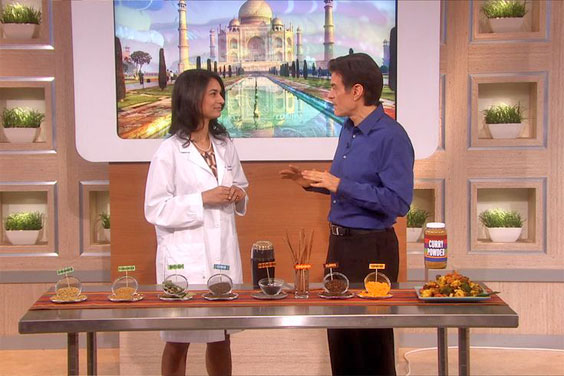What Your Elimination Says About Your Health
Time to read: 15 mins

Digestion is the body’s main line of defence; it supports immune function, emotional balance, and overall vitality. It can also be the root cause of many health issues. And what is the best way to know the overall state of your digestive tract? Your poop!
We had the opportunity to ask Integrative Neurologist and author of The Prime, Dr Kulreet Chaudhary, our many questions about elimination and wellness.
Dr Kulreet Chaudhary: What I actually love about this topic is that we are taking part of the taboo out of talking about poop. I suggested the title “What Your Poop Says About You.” I really want people to be more comfortable discussing and thinking about their bowel movements. Because even people that are married will talk about their finances and religion together, but they don’t have any inclination to talk about their partner’s elimination.
I’m not saying it is the first topic to discuss in a relationship, but it is something that should be on your health radar enough that you are aware of the by-products that your body is releasing, and we’ll explain why that is so important in this article.
Q: Could you explain to us how and why elimination is a good measure for the overall digestive function?
Dr Kulreet Chaudhary: The reason why it is such a good measure is that it is the final product of all of the processes related to digestion. So your elimination tells you what has been going on from the moment you put the food in your mouth all the way to when it is finally released from the colon. Your poop is giving a detailed summary of the entire journey of your food and all of the different factors in that journey. The mind and emotions will also have an impact on digestion and your elimination. So it is not like it is just an evaluation of digestion — it is also an evaluation of your mental state. People who have digestive conditions attest that if they are having a stressful day, their bowel movements can completely change.
Q: What kind of digestive imbalances can be common identifiers that we are looking for when we are thinking about elimination?
Dr Kulreet Chaudhary: Let’s go through a Poop 101 course. There are several different things that can help you understand your digestive system and your elimination. One of those is the odour. In general, when you have healthy elimination there is not a strong odour; oftentimes that really surprises people. Your poop isn’t supposed to smell like roses, but it is also not supposed to fill the space that it is in like helium in a balloon. In general, it should have a mild odour. When there is a strong odour, it oftentimes is a sign that there is undigested food, or it can also be the sign of too much heat, inflammation, and excess Pitta in the body. Your sweat will do the same thing; it will start to smell very strong under the same conditions. The idea that poop inherently has to smell bad is not correct. A very, very strong odour is not a sign of normal elimination. The smell of your poop is important.
The other thing that is important is the characteristics of the volume that you are producing. In general, normal bowel movements will sink to the bottom of the toilet. If they are floating that could be a sign of undigested fat in the stool, or you are eating an extremely high fibre diet.
The next thing that we look at is the overall consistency. If your poop is watery, that is usually a sign of increased heat or Pitta. If your poop is watery and smelly, that is definitely a sign of excess Pitta. If the consistency is very dry, that could be a sign of lack of fluid or lubrication or an excess of Vata. If there is an excess amount of mucus, that could be a sign of excess Kapha.
Then there is the shape of your elimination. We are not trying to create complex geometric designs in the bathroom! But notice that the normal shape of your bowel movements is the same as the tube that it is coming out of. If the poop is very thin, that could be a sign of a mass that is in the lower bowel or a thickening of the bowel wall near the rectum.
Another thing we can look at is froth. That may sound extremely odd to have froth in your poop, but it could be present if you have problems digesting lactose, the sugar in milk. Babies for example, when they have not completely learned to digest milk, will sometimes have froth in their bowel movements.
Another topic, almost of its own, is the colour of poop. If your bowel movements are black or tar-like or have coffee grounds in them, that is a sign of blood in the stool coming from the upper part of the GI system. White or grey poops can be from a lack of bile due to liver or gallbladder issues. When there is too much bile production, it can make your poop look green. A lower GI bleed can produce red poop. Keep in mind if you are eating a lot of beets or dragon fruit, your poop may also be reddish in colour. I had a moment when my son was growing up –he had beets the night before, and he ran into my room the next day and thought that something was seriously wrong because his poop was red!. But any kind of red blood in your elimination typically is suggestive of a lower GI bleed, including possibly bleeding haemorrhoids. Yellow or orange coloured stools can be a sign of too much fat in the stools from poor absorption. When the bowel movements are watery, smelly, and yellow typically those are signs of excess Pitta.
This is a very simple introduction to your poop as a window to your entire digestive tract.

Q: You mentioned some of the doshas in there. What are the doshic factors when it comes to poop? How does balancing the doshas also help balance elimination?
Dr Kulreet Chaudhary: We mentioned some of the characteristics of the doshas, but again, it is simple. People with excess Vata can have dark, dry-looking poops. Those with excess Pitta can have yellowish, loose bowel movements with a strong smell. Individuals with excess Kapha can have whitish, sticky looking poops. So in the traditional Ayurvedic practice, a vaidya, or Ayurvedic physician, could look at the bowel movements of each patient and see the excess doshas that needed to be addressed and treated.
Q: So almost like stool-testing?
Dr Kulreet Chaudhary: Yes, very much! It’s like stool testing on a daily basis.
Q: How many bowel movements a day is considered healthy or normal?
Dr Kulreet Chaudhary: That is a great question! I get this question all of the time in my clinic. In part, it depends on which dosha you are. A bare minimum is at least one bowel movement a day. That is just a healthy amount because your body needs to clear out everything it has digested from the day before. Now, somebody who is really, really Kapha should still be aiming for at least one bowel movement a day, but they may have a tendency to skip a day. Someone with very strong Vata may not have a bowel movement every day also. For both Vata and Kapha, they can have a tendency towards constipation. We wouldn’t necessarily consider that normal or healthy — we would say, ok that is something we need to address. The goal is to have at least one bowel movement a day. For those with a lot of Pitta, they may have up to three bowel movements a day. And that could still be considered very normal for someone with Pitta in their physiology.
Q: What would you say is a good herb to regulate or optimize digestive function?
Dr Kulreet Chaudhary: There are different herbs for digestion that address different areas of the gut. These herbs are addressing Agni, the digestive fire, as a whole, so in that sense, they are very holistic herbs. One such herb is Ginger. Even for Pitta imbalances, when the Agni is out of balance, you can mix ginger with certain other herbs that are cooling to normalize Pitta Agni if there is ama, or toxins, in the digestive tract. Ginger helps enliven the digestive system. It is so easy to use! You can use ginger tea. It is one of the additions that we would often recommend for The Prime Tea, also known as Digest & Detox Tea. Or just cooking with ginger can enhance your digestion.
The second herb I often recommend is Triphala, available as Triphala with Rose (MA505) from MAP-UK. I don’t think it gets any better than Triphala when it comes to supporting elimination. Once you are at a point where you are at goal with your digestion, you can move Triphala from daily use to using it three times a week or at least once a week in slightly higher doses just to help clear the digestive system of toxins regularly.
That is one of the recommendations in Ayurveda – at least once a week, do something just to clear out toxins from the digestive tract. In my clinic in San Diego, I would start almost every patient on Triphala, because if we detox the digestive system then we are already half-way to the goal. Here in India, I always start patients on Triphala, and once they are at their digestive goal, then we can begin to reduce it to every other day, or three times a week, or just once a week depending on the person.
Q: That is a great tip! I haven’t heard you recommend using triphala in that way before. Thank you for sharing that. What about fiber in the diet? What is a good resource of fiber and who needs it?

Dr Kulreet Chaudhary: It may be easier to ask the question: Who doesn’t need fibre? Because everyone needs fibre! Fibre is what feeds our healthy bacteria. A healthy, balanced diet should naturally have a lot of fibre from fruits, legumes, vegetables, etc.
Now, what percentage of the population is following a healthy diet?
Honestly, in the U.S., maybe 10% of people who came into my clinic were already following a healthy diet that provided them with the fibre they need. What is interesting is the percentages are not that different even here in India, because of the impact of processed foods on the Indian diet now.
There is just a general tendency for more starch and less fruits and vegetables globally. Because of that, we can find supplementation to our diet by adding Psyllium. It is a wonderful source of fibre, and it has been used in Ayurvedic medicine for thousands of years.
You will quickly notice a difference on the impact it has. Once you are in a place where you are at goal with your digestion, you can just add this in three times a week or twice a week for extra support.
Q: Could you explain what is Ojas? And what is the relationship between Ojas, digestion, and overall health?
Dr Kulreet Chaudhary: Ojas can be defined as the most refined product of digestion. It is an actual substance that nurtures your entire physical being. But it is also the substance used for spiritual evolution. It doesn’t just have important significance for the body; it also has important significance for the mind. It also helps the mind transcend to connect with the soul.
The storage house of Ojas is in the heart. So it gives you a sense of what is the nature of Ojas if it is stored in the heart. Ojas is dependent on the food that you are eating, but it is also dependent on the thoughts you are thinking and the life that you are living.
There are studies that have been done with animals; one in particular where the rabbits were fed a high cholesterol diet, and there was one sub-section that did not experience any of the expected health consequences. It turned out that that caregiver for that particular set of rabbits was petting them as he was feeding them the unhealthy diet.
So in a state of love, you can take almost anything that you eat and turn it into Ojas. I think we have all experienced this; I certainly have. Especially here in India, there are so many spiritual celebrations. When we go to the celebrations, there is an expansive feeling, the energy is so elevated, and your heart opens up so wide.
We usually don’t eat dinner until 11:00 pm during these celebrations, and we eat a completely inappropriate meal filled with flour, sugar, cream and butter! These are things I wouldn’t even eat when my digestion is at the strongest point of the day, at noon. Yet, because of that elevated state, your body is able to digest the food properly. Because of the expansive nature of the experience, your body is creating Ojas, eating food that would otherwise create toxins when eaten so late at night.
Ama is the exact opposite of Ojas. It is the toxic residue of food and also your thoughts and emotions. So the reverse is also true. I saw this many times in my clinic in San Diego. Early in my professional career, I was eating healthily, but I was living in such a stressful routine that even putting healthy foods into my body was creating ama because there was such a degree of strain that existed in my body and mind on a daily basis.
Q: What kind of recommendations or encouragement do you have for all of us to really embrace how our bodies digest and process?

Dr Kulreet Chaudhary: There is a physical recommendation that is appropriate for your body. But there is also an emotional recommendation and a spiritual recommendation for a happy and healthy life. You really have to take all three of these areas into consideration. I see people in my clinic that are doing the work spiritually, but then they happen to need Triphala to support their elimination.
Let’s take all three levels into consideration. On the physical level, adding things like ginger will improve your digestion. Just cooking with ginger is a good place to start. If you have excess Pitta, then balance it with cooling spices and herbs. Choose foods that promote Ojas: avocados, almonds, figs, dates, and green leafy vegetables. These foods all increase Ojas.
Then look at it from a mental and emotional level. Giving love in your life can automatically create Ojas. When you consider your digestive health, ask yourself this one question at the end of each day: “How much love did I show the people that I met today?” If you can give an honest answer to that question on a daily basis, you can increase digestive health.
Then there is the no-brainer: having a daily meditation routine improves your digestion.
There is something really magical when all three of these paths merge together and you are just digesting your life experiences well. If you are not practising love and meditation in your life – you will not have healthy digestion no matter how clean you eat.
Q: That is so simple! Thank you, Dr. Chaudhary, for sharing all of your insights. We hope that everyone is inspired to find their digestive goals and embrace the wonderful insights you shared with us today.

About Dr Chaudhary
Dr Kulreet Chaudhary’s combined expertise in both modern neurology and the ancient science of health known as Ayurveda has uniquely positioned her as an expert able to pull from the broadest possible base to treat her clients.
Web: Dr Kulreet Chaudhary
DISCLAIMER: The information in this document is presented for the sole purpose of imparting education on Maharishi AyurVeda and neither the information nor the products are intended to diagnose, treat, mitigate, cure or prevent any disease. If you have a medical condition or are pregnant or lactating, please consult a health professional and it is recommended that you speak with your physician before making significant changes to your diet or routine.






